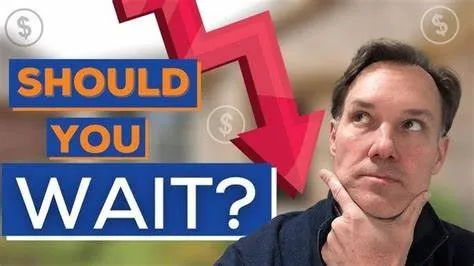Investing in an all-time high market is expensive hence one should wait till the market corrects itself. These are among few policies that an investor should NOT follow. Taking that giant leap to start your investment journey in all-time highs may seem like expensive bait but you have no idea how much you can lose if you wait. It is a loss of opportunity and wealth that could have been created if you started investing early. Compounding is magic, but it needs time. To know more on how an investor can lose wealth if he invests later in life read here-
Start investing early and let compounding do the magic for you. (fivecapital.in)
I’ll give you reasons why you shouldn’t wait-
Waiting for the stock market to crash is like waiting for the sea to be standstill (like a statue) before you begin sailing
Harbor is safe indeed, but ships aren’t made for the harbour. Such an attitude is pessimistic. Investing journey does not begin with pessimism. Market corrections happen because of various reasons like growth issues, people suffering or dying (in case of the year 2020), job losses, geopolitical tensions, wars etc and will keep happening. There might be times when these market crashes may affect you. You won’t be able to invest because you have some other pressing needs that demand money and attention immediately. Investors run out of time before they run out of money if they wait for market corrections. Plus waiting for doom is exhausting!
You won’t be left with cash to buy anyway
For instance, let’s say you do not listen to the above advice and wait for the stock market to crash so that you can buy low and sell high. And to your delight, the market is at an all-time low. But what if the stock market low and poor liquidity/no money in your hands coincide?
Now what?
You are left with no money to start what you waited for in the first place, that too for years! Life is too short and full of uncertainties and the above scenario is very likely.
(Another scenario that is very likely is an investor may die before he starts his investment journey. So, carpe diem!)
Honestly, cross your heart and tell me how many of you went to buy stocks when the market crashed due to the coronavirus pandemic in 2020?
Very few, because then money was needed to cover your fixed expenses owing to lockdown and hospital bills.
Also, idle cash lying in your bank account tempts you to spend it every time you peek at your bank balance. It’s like a siren call. A person buys things not because he wants them, but because he can afford them. The brain creates unnecessary necessities when it knows that it can afford them. If that idle cash was invested, it would have created wealth and stopped the unnecessary expense.
No one has any idea what markets can do
Two charts below show how the market recovered after crashes in 2020 and 2008-

After the crash market usually takes time to recover, or not. As you can see in the above chart, after May 2020 the Nifty50 index started recovering and kept on touching highs.
But this doesn’t hold true every time.

During the 2008 financial crisis market took a lot of time before Nifty50 started recovering.
This is why it’s best to invest when it’s the right time for you and not for the market. An optimum (not best) combination of correct timing for investors and the market is to be sought.
A few tips to invest during all-time highs
If you invest in an all-time high market, choose companies that will grow higher than expected. An investor can look at EPS for the same. Try looking for companies that have easy access to capital and the ones you think will outperform the market indexes.
Try investing via SIP or STP instead of lumpsum to protect your money from market fluctuations. Staggered investment inculcates discipline too. Hot tips in an all-time high market can be tempting, hence pick a strategy and stick to it. Investing is all about patience.
Follow asset allocation, goal-based investing, diversification and rebalance to maximize returns. These are cardinal rules of investing.
Rupee-cost averaging is a smart way of investing in high and low markets as investment happens at a predetermined interval. It also keeps behavioural biases at bay.
To sum it up
Remember, long term investors, reduce risk and eventually make a handsome CAGR. So go ahead and invest!

